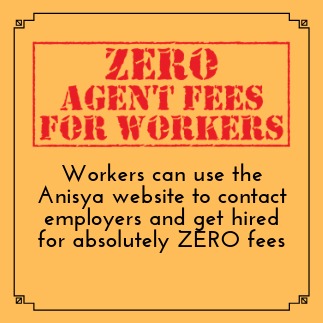Maid industry needs a cleanup
Removing levy scheme and including amount under minimum wage a win-win deal for all
Which industry in Singapore has stood still the last 30 years, with no improvement in the quality it delivers or the skill level of its workers?
Clue: It employs 200,000 – a number projected to grow to 300,000 in 2030.
One more: Not only does it employ so many workers, but the job they do is so important that our children’s upbringing is often in their hands.
No such industry here?
How can any business stand still for 30 years in fast-changing Singapore?
Welcome to the foreign maid business.
In fact, you could argue that the typical foreign maid hired today is probably of lower quality and less suited to work here than when the scheme was first started in 1978.
Back then, when the numbers were small, maid agencies had a wider pool of women, most of them Filipinas, to choose from. Some – and I knew of a few – were in fact college-educated but could not find decent paying jobs in their home country.
Today, the demand has exploded, not just in Singapore but elsewhere in the region too, including in Malaysia and Hong Kong.
Because of this, many more women are being recruited from places such as Indonesia, Myanmar, Bangladesh and Sri Lanka.
And the recruitment is taking place not just in the cities where women tend to be better educated and used to urban living, but also from rural areas with poorer and less suitable women.
As a result, quality has suffered over the years.
It’s worse in Singapore because of the levy scheme that is used to control the numbers.
Whenever the levy has been increased, as it has over the years, the natural tendency is for employers to keep costs down, and they do so by looking for cheaper sources of maids. Maid agencies are only too happy to oblige.
That invariably means younger women with little education from rural communities who will have problems adjusting to life in Singapore.
Some of the problems faced by many of them have surfaced and been reported over the years.
It must be the only industry here where the quality of the workforce has deteriorated, with no improvement in sight.
In contrast, places like Hong Kong that do not have a levy scheme face fewer problems on this front.
Instead, there is a minimum wage in Hong Kong, currently at HK$3,920 (S$620), which makes it a much more attractive place for maids to work in.
The Straits Times correspondent Radha Basu wrote earlier this year of her experience interviewing maids in training centres in and around the Indonesian capital Jakarta.
Most said they preferred to work in Hong Kong or Taiwan, where the salaries are much higher, than in Singapore where maids typically earn about $400 a month.
Even if some of them end up here, the better ones, after a few years, leave for better pay elsewhere.
This problem is likely to get worse because the demand for foreign maids will increase as countries in the region grow more affluent and job opportunities in the home countries of these workers improve.
Singapore households which have become so dependent on these maids will continue to get the less attractive end of the stick.
A better method is to abolish the levy scheme and impose a minimum wage, just like in Hong Kong.
For a start, this minimum wage can be the typical wage of a maid here, plus the amount of the levy, currently at $265, bringing it closer to what is paid in Hong Kong and Taiwan.
For a Singaporean household, the overall cost will remain the same, with the levy amount in effect going to the maid.
It will be win-win for both employer and maid.
Singapore will then have a better chance of attracting better maids, and hopefully that will result in fewer problems with ill-adjusted maids.
There are, of course, some who believe we will be much better off as a society if we were not so reliant on maids.
They blame the over-dependence for some of the social ills here, including badly brought up and spoilt children who grow up expecting someone else to clear the mess they leave behind.
They may be right, but it is unlikely the clock can be turned back.
What is true is that it has been a great tragedy for countries such as the Philippines that so many of their men and women have been forced to find work outside their countries.
For married women especially, to be separated from their children and husbands, to work in a strange place and be at the beck and call of strangers, must be quite a frightening experience.
Worse, they often have to pay large sums to labour recruitment agencies to secure employment.
This leaves them with barely enough in the first year when they pay back the money owed by instalments.
The greater tragedy is that the solution is actually quite simple, but only if their own governments are prepared to act in a decisive way.
If I were the Philippine or Indonesian government, I would set up a central agency which would be the only organisation allowed to recruit and send out those wanting to work overseas as maids.
All other recruitment agencies involved in the foreign maid business would be outlawed.
This isn’t difficult to do because governments are able to control the movement of people in and out of the country through the issue of passports and visas.
With a central agency in charge, it would be possible for the government to dictate the terms of employment for these women, such as minimum salaries, with the receiving countries.
Indeed, the Philippine and Indonesian governments have tried in recent years to do this, but have failed to have them widely adopted because labour recruitment companies circumvent them and continue to operate under their own terms.
These governments need to take direct control of the recruitment process.
It might be a logistical and administrative nightmare, but if they were really interested in looking after the interests of their own citizens instead of allowing them to be exploited, the cost would be worth paying.
Alas, for these women, their governments lack the political courage to make this change in the face of so many vested interests in their countries which make money from the present arrangement.
And so their own citizens continue to suffer the consequences.
It is a price they pay for weak government.
This article was first published in The Sunday Times
View all posts in Anisya Blog
Posted on 4 Dec 2012

Help FDWs avoid debt
Anisya can help with the MOM paperwork

Found a suitable worker on Anisya? We can help with the MOM paperwork. Our service fee is $450. Click here for more info.
Full service hiring available

Need to hire an FDW in a hurry? Let Anisya help you with screening, short-listing and scheduling interviews with workers, and managing all the MOM paperwork formalities! More details here.
Anisya Web Services works in partnership with Anisya LLP (MOM License 12C5866) for MOM related transactions.
Anisya is a proud Social Enterprise member of the Singapore Centre for Social Enterprise (raiSE) and the Business For Good community which promotes the use of business for social impact.

